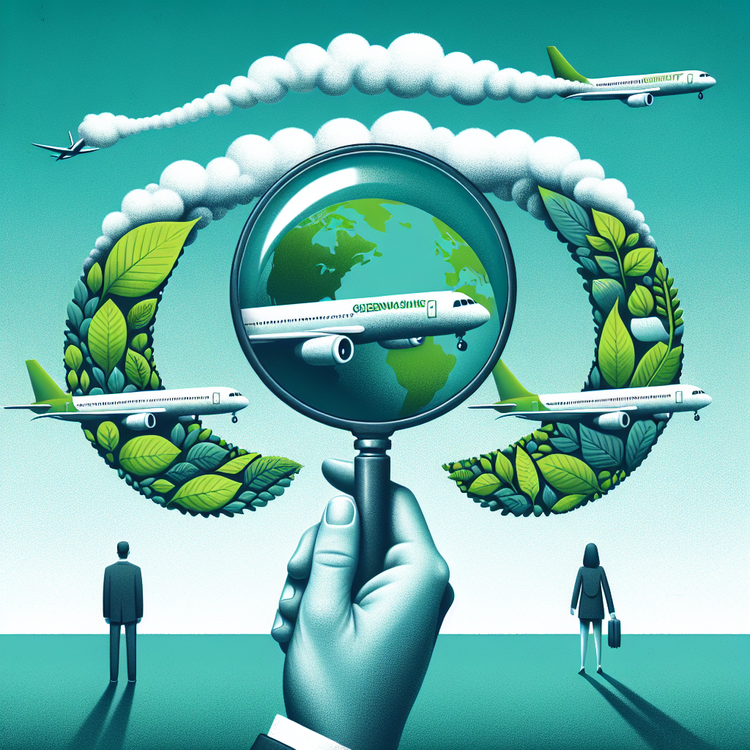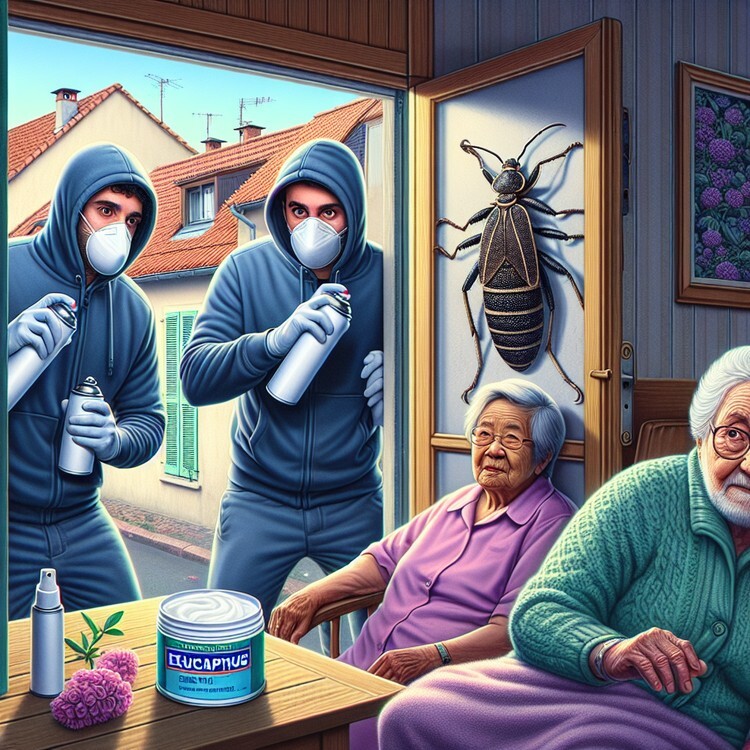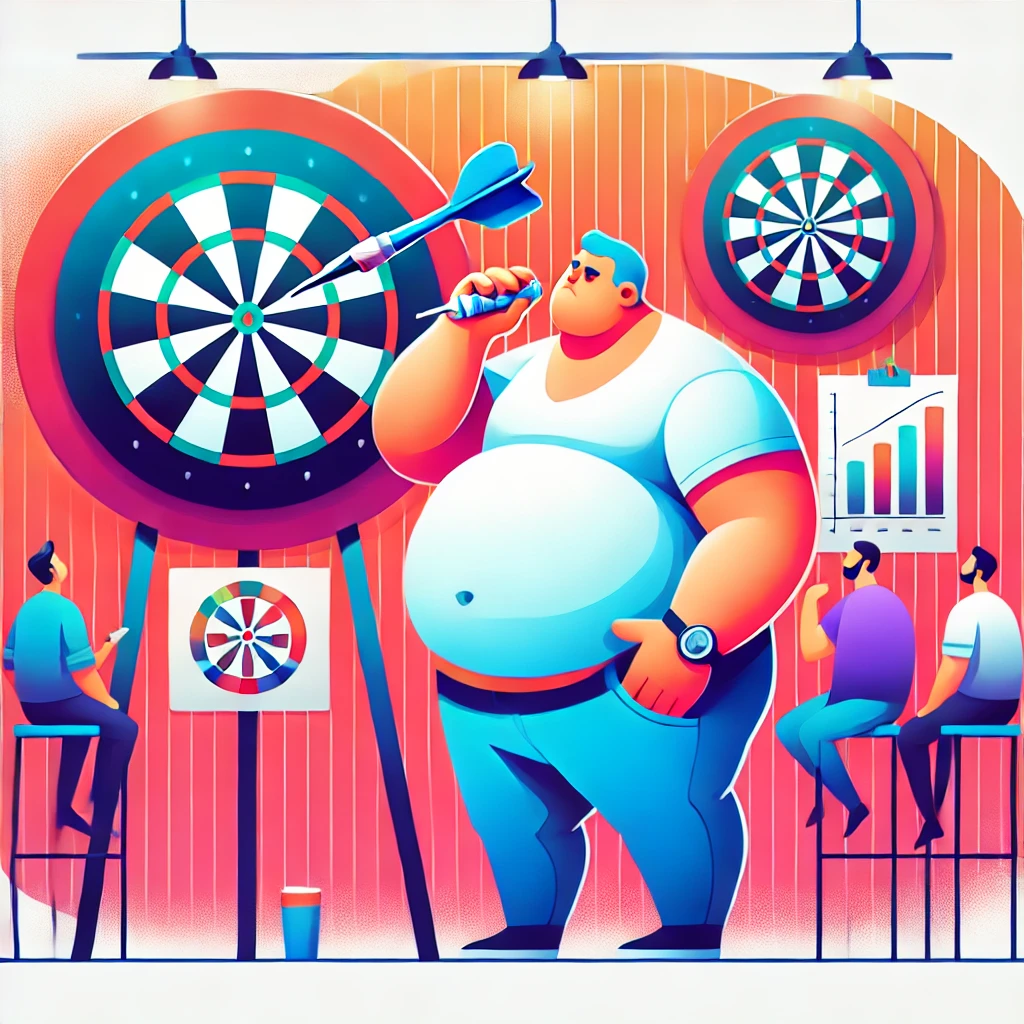The Advertising Standards Authority (ASA) has banned ads from Air France, Lufthansa, and Etihad because they were misleading about the airlines’ impact on the environment. The ads didn’t show the true effects of the airlines on climate change. Air France said they cared about the environment, Lufthansa told people to “fly more sustainably,” and Etihad used the words “environmental advocacy.” The ASA checks if companies are “greenwashing,” which is when they pretend to be more environmentally friendly than they really are.
Lufthansa said “fly more sustainably” was about their “Green Fares” option, which uses fuel that’s better for the environment and supports climate protection projects. They want to be carbon neutral by 2050 and will take out the phrase from future ads. Etihad Airways removed all mentions of “environmental advocacy” from their ads after the complaint. The ASA used an artificial intelligence system to find the misleading ads.
This isn’t the first time Lufthansa has been called out for greenwashing. In a previous campaign, they made people think they had already done things to reduce their impact on the environment. The ASA agreed that air travel creates a lot of CO2 and other emissions that cause climate change. The ASA has also banned ads from other companies like Persil, HSBC, Shell, Innocent, Oatly, Golden Leaves, and JC Atkinson & Son for greenwashing.
Companies are under more pressure to reduce their carbon emissions, especially airlines. In November, a flight across the Atlantic used fuel that’s better for the environment, showing that greener flying is possible. But right now, sustainable aviation fuels make up less than 0.1% of all aviation fuel used worldwide, and there are no commercial plants in the UK. The UK government wants 10% of aviation fuel to be sustainable by 2030.
Original news source: Airline adverts banned over ‘greenwashing’ claims (BBC)
Listen:
Slow
Normal
Fast
Vocabulary:
| 1 | banned | Not allowed or prohibited |
| 2 | misleading | Giving the wrong idea or information |
| 3 | impact | The effect or influence of something |
| 4 | climate change | The long-term change in weather patterns caused by human activity |
| 5 | greenwashing | When a company pretends to be more environmentally friendly than it really is |
| 6 | sustainably | In a way that doesn’t harm the environment |
| 7 | carbon neutral | Having no net release of carbon dioxide into the atmosphere |
| 8 | artificial intelligence | A computer system that can think and learn like a human |
| 9 | emissions | Gases released into the air, especially harmful ones |
| 10 | pressure | The force or stress put on someone to do something |
| 11 | reduce | To make something smaller or decrease it |
| 12 | aviation | Related to flying or aircraft |
| 13 | greener | More environmentally friendly or less harmful |
| 14 | sustainable | Able to continue without causing damage to the environment |
| 15 | commercial | Related to buying and selling goods or services |
Group or Classroom Activities
Warm-up Activities:
– News Summary
Instructions: In pairs, students will read the article and then write a concise summary of the main points. They should focus on the key information and use their own words to summarize the article in about 5-7 sentences. Afterward, they can share their summaries with the class.
– Opinion Poll
Instructions: In small groups, students will discuss their opinions on the actions taken by the ASA to ban the misleading ads. They should consider whether they agree or disagree with the decision, and why. Each group will then present their opinions to the class, and a class-wide discussion can take place.
– Vocabulary Pictionary
Instructions: Divide the class into teams. Give each team a set of vocabulary words from the article. One student from each team will come to the front of the class and silently draw a picture representing one of the words. Their team members must guess the word based on the drawing. The team with the most correct guesses wins.
– Pros and Cons
Instructions: In pairs, students will discuss the pros and cons of companies being held accountable for greenwashing in their advertising. They should consider the benefits and drawbacks of the ASA’s actions, as well as the potential impact on consumers and the environment. Afterward, pairs can share their ideas with the class.
– Future Predictions
Instructions: Individually, students will write a short paragraph predicting what they think the future of advertising and environmental messaging will look like. They should consider how companies may adapt their advertising strategies to be more environmentally conscious, and how consumers may respond. Students can then share their predictions with a partner and discuss their ideas.
Comprehension Questions:
1. Why did the Advertising Standards Authority ban the ads from Air France, Lufthansa, and Etihad?
2. What does it mean when a company is “greenwashing”?
3. What does Lufthansa’s “fly more sustainably” mean?
4. Why did Etihad Airways remove the phrase “environmental advocacy” from their ads?
5. How did the Advertising Standards Authority find the misleading ads?
6. Why has Lufthansa been called out for greenwashing before?
7. Why are companies, especially airlines, under pressure to reduce their carbon emissions?
8. What is the UK government’s goal for sustainable aviation fuel by 2030?
Go to answers ⇩
Listen and Fill in the Gaps:
The Advertising Standards Authority (ASA) has banned ads from Air France, (1)______, and (2)______ because they were misleading about the (3)______’ impact on the environment. The ads didn’t show the true (4)______ of the airlines on climate change. Air France said they cared about the environment, Lufthansa told people to “fly more sustainably,” and Etihad used the words “environmental advocacy.” The ASA checks if companies are “greenwashing,” which is when they pretend to be more (5)______ally friendly than they really are.
Lufthansa said “fly more sustainably” was about their “Green Fares” (6)______, which uses fuel that’s better for the environment and supports climate protection projects. They want to be carbon neutral by 2050 and will take out the phrase from future ads. Etihad (7)______ removed all mentions of “environmental advocacy” from their ads after the complaint. The ASA used an (8)______ intelligence system to find the misleading ads.
This isn’t the first time Lufthansa has been called out for greenwashing. In a previous campaign, they made people think they had already done (9)______ to (10)______ their impact on the environment. The ASA agreed that air travel creates a lot of CO2 and other emissions that cause climate change. The ASA has also banned ads from other (11)______ like (12)______, HSBC, Shell, Innocent, Oatly, Golden Leaves, and JC Atkinson & Son for greenwashing.
Companies are under more pressure to reduce their carbon emissions, especially airlines. In (13)______, a flight across the (14)______ used fuel that’s better for the environment, showing that (15)______ flying is possible. But right now, sustainable aviation fuels make up less than 0.1% of all aviation fuel used worldwide, and there are no commercial (16)______ in the UK. The UK government wants 10% of aviation fuel to be sustainable by 2030.
Go to answers ⇩
Discussion Questions:
Students can ask a partner these questions, or discuss them as a group.
1. What is greenwashing and why is it a problem?
2. How do you feel about companies that pretend to be more environmentally friendly than they really are?
3. Do you think it’s important for companies to be transparent about their impact on the environment? Why or why not?
4. How would you feel if you found out that an airline you liked was greenwashing in their advertisements?
5. Do you think it’s possible for airlines to be completely carbon neutral by 2050? Why or why not?
6. What do you think about the use of artificial intelligence to find misleading ads?
7. Have you ever seen an advertisement that you thought was misleading? Can you describe it?
8. How do you think companies can be held accountable for greenwashing?
9. Do you think it’s fair for the ASA to ban misleading ads? Why or why not?
10. What actions do you think airlines could take to be more environmentally friendly?
11. How do you think the aviation industry can increase the use of sustainable aviation fuels?
12. Do you think the UK government’s goal of having 10% of aviation fuel be sustainable by 2030 is realistic? Why or why not?
13. How do you feel about the current state of greener flying and sustainable aviation fuels?
14. Have you ever made a purchasing decision based on a company’s environmental claims? Can you give an example?
15. What do you think consumers can do to encourage companies to be more environmentally friendly?
Individual Activities
Vocabulary Meanings:
Match each word to its meaning.
Words:
1. banned
2. misleading
3. impact
4. climate change
5. greenwashing
6. sustainably
7. carbon neutral
8. artificial intelligence
9. emissions
10. pressure
11. reduce
12. aviation
13. greener
14. sustainable
15. commercial
Meanings:
(A) The effect or influence of something
(B) Related to buying and selling goods or services
(C) Giving the wrong idea or information
(D) The force or stress put on someone to do something
(E) Able to continue without causing damage to the environment
(F) To make something smaller or decrease it
(G) The long-term change in weather patterns caused by human activity
(H) Having no net release of carbon dioxide into the atmosphere
(I) Not allowed or prohibited
(J) Gases released into the air, especially harmful ones
(K) Related to flying or aircraft
(L) When a company pretends to be more environmentally friendly than it really is
(M) In a way that doesn’t harm the environment
(N) A computer system that can think and learn like a human
(O) More environmentally friendly or less harmful
Go to answers ⇩
Multiple Choice Questions:
1. Why were ads from Air France, Lufthansa, and Etihad banned by the ASA?
(a) They were too expensive.
(b) They were misleading about the airlines’ impact on the environment.
(c) They were not visually appealing.
(d) They were promoting other products.
2. What does “greenwashing” mean?
(a) Using green paint on advertisements.
(b) Promoting the color green.
(c) Recycling old advertisements.
(d) Pretending to be more environmentally friendly than you really are.
3. What did Lufthansa mean by “fly more sustainably”?
(a) Using fuel that’s better for the environment and supporting climate protection projects.
(b) Flying more frequently.
(c) Flying at a slower speed.
(d) Using less fuel.
4. Why did Etihad Airways remove mentions of “environmental advocacy” from their ads?
(a) After a complaint from the ASA.
(b) They wanted to promote a different message.
(c) They wanted to save money.
(d) They realized it was misleading.
5. What did the ASA use to find the misleading ads?
(a) A team of investigators.
(b) A group of environmental experts.
(c) A focus group.
(d) An artificial intelligence system.
6. Why has Lufthansa been called out for greenwashing before?
(a) They used too much green paint in their ads.
(b) They didn’t mention the environment at all in their ads.
(c) They made people think they had already done things to reduce their impact on the environment.
(d) They were promoting their competitors.
7. Why are companies, especially airlines, under pressure to reduce their carbon emissions?
(a) To save money on fuel.
(b) To attract more customers.
(c) To combat climate change.
(d) To comply with government regulations.
8. What percentage of aviation fuel used worldwide is currently sustainable?
(a) 10%.
(b) Less than 0.1%.
(c) 50%.
(d) 100%.
Go to answers ⇩
True or False Questions:
1. Lufthansa said “fly more sustainably” was about their “Green Fares” option, which uses fuel that’s better for the environment and supports climate protection projects.
2. Etihad Airways removed all mentions of “environmental advocacy” from their ads after the complaint.
3. The ASA has not banned any ads from companies like Persil, HSBC, Shell, Innocent, Oatly, Golden Leaves, and JC Atkinson & Son for greenwashing.
4. The ASA used a manual review process to find the misleading ads.
5. The Advertising Standards Authority (ASA) has approved ads from Air France, Lufthansa, and Etihad because they were accurate about the airlines’ impact on the environment.
6. Lufthansa has been called out for greenwashing in the past, making people think they had already done things to reduce their impact on the environment.
7. The UK government wants 0% of aviation fuel to be sustainable by 2030.
8. The ads didn’t show the true effects of the airlines on climate change.
Go to answers ⇩
Write a Summary:
Write a summary of this news article in two sentences.
Check your writing now with the best free AI for English writing!
Writing Questions:
Answer the following questions. Write as much as you can for each answer.
Check your answers with our free English writing assistant!
1. Why were ads from Air France, Lufthansa, and Etihad banned by the Advertising Standards Authority?
2. What does it mean for a company to “greenwash”?
3. How did Lufthansa explain their use of the phrase “fly more sustainably” in their ads?
4. What action did Etihad Airways take after the complaint about their ads?
5. Why are companies, especially airlines, under pressure to reduce their carbon emissions?
Answers
Comprehension Question Answers:
1. The Advertising Standards Authority banned the ads from Air France, Lufthansa, and Etihad because they were misleading about the airlines’ impact on the environment.
2. “Greenwashing” means when a company pretends to be more environmentally friendly than they really are.
3. Lufthansa’s “fly more sustainably” means that they offer a “Green Fares” option, which uses fuel that’s better for the environment and supports climate protection projects.
4. Etihad Airways removed the phrase “environmental advocacy” from their ads after the complaint to avoid misleading consumers.
5. The Advertising Standards Authority used an artificial intelligence system to find the misleading ads.
6. Lufthansa has been called out for greenwashing before because in a previous campaign, they made people think they had already done things to reduce their impact on the environment.
7. Companies, especially airlines, are under pressure to reduce their carbon emissions because air travel creates a lot of CO2 and other emissions that cause climate change.
8. The UK government’s goal for sustainable aviation fuel by 2030 is for 10% of aviation fuel to be sustainable.
Go back to questions ⇧
Listen and Fill in the Gaps Answers:
(1) Lufthansa
(2) Etihad
(3) airlines
(4) effects
(5) environment
(6) option
(7) Airways
(8) artificial
(9) things
(10) reduce
(11) companies
(12) Persil
(13) November
(14) Atlantic
(15) greener
(16) plants
Go back to questions ⇧
Vocabulary Meanings Answers:
1. banned
Answer: (I) Not allowed or prohibited
2. misleading
Answer: (C) Giving the wrong idea or information
3. impact
Answer: (A) The effect or influence of something
4. climate change
Answer: (G) The long-term change in weather patterns caused by human activity
5. greenwashing
Answer: (L) When a company pretends to be more environmentally friendly than it really is
6. sustainably
Answer: (M) In a way that doesn’t harm the environment
7. carbon neutral
Answer: (H) Having no net release of carbon dioxide into the atmosphere
8. artificial intelligence
Answer: (N) A computer system that can think and learn like a human
9. emissions
Answer: (J) Gases released into the air, especially harmful ones
10. pressure
Answer: (D) The force or stress put on someone to do something
11. reduce
Answer: (F) To make something smaller or decrease it
12. aviation
Answer: (K) Related to flying or aircraft
13. greener
Answer: (O) More environmentally friendly or less harmful
14. sustainable
Answer: (E) Able to continue without causing damage to the environment
15. commercial
Answer: (B) Related to buying and selling goods or services
Go back to questions ⇧
Multiple Choice Answers:
1. Why were ads from Air France, Lufthansa, and Etihad banned by the ASA?
Answer: (b) They were misleading about the airlines’ impact on the environment.
2. What does “greenwashing” mean?
Answer: (d) Pretending to be more environmentally friendly than you really are.
3. What did Lufthansa mean by “fly more sustainably”?
Answer: (a) Using fuel that’s better for the environment and supporting climate protection projects.
4. Why did Etihad Airways remove mentions of “environmental advocacy” from their ads?
Answer: (a) After a complaint from the ASA.
5. What did the ASA use to find the misleading ads?
Answer: (d) An artificial intelligence system.
6. Why has Lufthansa been called out for greenwashing before?
Answer: (c) They made people think they had already done things to reduce their impact on the environment.
7. Why are companies, especially airlines, under pressure to reduce their carbon emissions?
Answer: (c) To combat climate change.
8. What percentage of aviation fuel used worldwide is currently sustainable?
Answer: (b) Less than 0.1%.
Go back to questions ⇧
True or False Answers:
1. Lufthansa said “fly more sustainably” was about their “Green Fares” option, which uses fuel that’s better for the environment and supports climate protection projects. (Answer: True)
2. Etihad Airways removed all mentions of “environmental advocacy” from their ads after the complaint. (Answer: True)
3. The ASA has not banned any ads from companies like Persil, HSBC, Shell, Innocent, Oatly, Golden Leaves, and JC Atkinson & Son for greenwashing. (Answer: False)
4. The ASA used a manual review process to find the misleading ads. (Answer: False)
5. The Advertising Standards Authority (ASA) has approved ads from Air France, Lufthansa, and Etihad because they were accurate about the airlines’ impact on the environment. (Answer: False)
6. Lufthansa has been called out for greenwashing in the past, making people think they had already done things to reduce their impact on the environment. (Answer: True)
7. The UK government wants 0% of aviation fuel to be sustainable by 2030. (Answer: False)
8. The ads didn’t show the true effects of the airlines on climate change. (Answer: True)
Go back to questions ⇧















